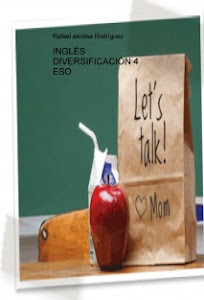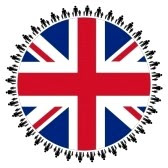
26/2/09
JUST IN TIME GAME

25/2/09
Some , Any, A lot of
A lot, some, and any are used with indefinite amounts:
Example:
Q: How many students are there in the classroom:
A: There are a lot. (This is a large number). Or....
A: There are some students. (This is a small number but the number is not known.) Or....
A: There aren't any students. (This is zero or a very, very small number and the number is not known.
The "rules" that follow apply also to words containing some and any: somebody/anybody, something/anything, etc.
In general, some is used in positive sentences:
I got some nice presents for Christmas this year.
This job is going to take some time.
In general, any is used in negative sentences and questions:
I didn't get any nice presents for Christmas this year.
I looked in the cupboard but I couldn't find any biscuits.
I don't need any help.
In fact, the use of some/any is a little more complicated. Following are two common occasions when the above "rules" are "broken":
1. We can use some in questions when offering/requesting:
Would you like some more tea?
Could I have some milk, please?
Do you want something to eat?
2. We use any in positive sentences when we mean it doesn't matter which ..:
You can come and ask for my help any time.
Which book shall I read? - Any one. It's up to you.
You can sit anywhere but here. This is my seat!
DO a TEST about this topic here!
Embedded Questions- how it works!
This video explains how we can form embedded questions, it's really interesting!
24/2/09
HOWEVER ,
"However" is a transitional word that moves your ideas from one sentence to another. It's very similar to "but." It's used to show contrasts and differences.
Having a car can be very convenient; however, it's expensive to buy and maintain one.

Walter has a lot of work to do; however, he's too tired to finish it.
Jim is in love with Graciella; however, he's not sure if she loves him.

However hard she tried, she could not open the door to get the office supplies.

However = No matter how
Bill doesn't mind working late; however, he's a little scared of walking home by himself at this time of the night.

Beekeeping is an important occupation; however, the beekeeper must keep himself covered at all times.
23/2/09
The Future - Grammar Tips

****** FUTURE SIMPLE(Future with 'Will'):
Affirmative: I will go with you; It will rain tomorrow.
Negative: He will not / won’t live here next year.
Interrogative: Will you stop this quarrel?
Note: will is also a normal verb and means : querer; Will you marry me?
USES:
i.e. The computer will break down// You’ll be a doctor in the future.
2. A spontaneous decision made at the moment of speaking.
e.g. Do you know what? I’ll buy it! // O.K. I’ll talk to my boss.
Note: i.e. (in exemplum) or e.g.(exempli gratia)
3. Make a Promise.
****** Be Going To:
Form: S+ be+ going to+ base form
Affirmative: She is going to live with you.
Negative: He isn’t going to help him.
Interrogative: Are they going to sell their house?
USES:
(Intenciones o planes de futuro.)
i.e. The council is going to introduce a new surveillance system next year.
We are going to study abroad next semester.
2. An action which has a clear outcome, because you can see
the evidence. (Indica lo que está apunto de ocurrir, vemos indicios )
e.g. He has a gun in his hand , he is going to rob.
Form: S+ Be+ (Verb+ ing)
Affirmative: He is flying to Manchester tomorrow.
USES:
( acciones planeadas que ocurrirán en un futuro próximo)
e.g. She is leaving her job tomorrow// The council is voting the new plan next week.
****** Future Continuous:
Form: S+ Will+ Be+ (Verb+ing)
USES:
i.e. Don’t call at 9.00. We’ll be watching a film
They will be getting married next Sunday.// At this time next year, he will be studying engineering. // When you arrive in Boston, I'll be sleeping soundly in my bed.// What will you be doing this time next week?
****** Future Perfect:
USES:
(Expresa una acción acabada en un momento concreto del futuro)i.e.By the end of the course, you Hill have paid your debt.//By three o’clock we’ll have finished school tomorrow//She'll have read the book by the time you arrive./
16/2/09
Using COMMAS (Punctuation)

1. Use a comma after phrases of more than three words that begin a sentence.
Correct Example: To get a gold medal, you must dedicate yourself to a training routine.
2. Use a comma after the date and year if they are used together. If its only the month and year, no comma is needed.
Correct Example: I was born on January 1, 1973, the same day the new year begins.
3. No comma is needed to separate nouns or noun clauses in a compound subject.
Incorrect Example (no comma needed): The music teacher from your high school, and the football coach from mine are married.
The Pause: Just because you are pausing in your thoughts while typing doesn't mean that the reader is pausing in their reading!
Combining Sentences: Do not use a comma to simply join 2 complete sentences. Use a conjunction (remember Conjunction Junction?)
Incorrect Example: The Chicago Cubs are going to lose tomorrow, they really have bad pitching.
Correct Example: The Chicago Cubs are going to lose tomorrow because they really have bad pitching.
(from tips on using commas, dumb little man)
15/2/09
Future activities
11/2/09
Saint Valentine's Day is coming...
1/2/09
What's your favourite book?



































